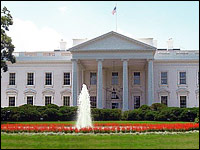
It is surprising — albeit perhaps inevitable — that the Obama Administration, which so ably navigated the Internet and Web 2.0 technologies during its presidential campaign, has stumbled using those same tools now that it is in office.
The White House has received a large number of complaints from people who say that they have received unsolicited emails about the ongoing debate over healthcare reform.
This most recent outcry follows an earlier controversy in which Obama spokespeople asked for “fishy” emails about healthcare reform to be forwarded to [email protected].
The White House said it set up that account — which apparently is now disabled — in order to set straight rumors circulating about the various proposals. Critics, though, claimed a different motivation, however: that the government was collecting email addresses, including those in the email chain, to keep track of protestors.
Before the election, Obama’s campaign used many methods of Internet communication to connect with voters. Clearly, though, it is learning that such tactics do not always translate well when used from a seat of power.
Taking Steps
The White House reportedly acknowledged that people were receiving unsolicited emails this weekend. It suggested that third-party groups were sending in the addresses. The White House has put in place two filter devices to remedy the situation.
Still, some maintain, the damage has been done.
“This raises suspicions in people’s minds about the messages they get from the White House,” David E. Johnson, president of Strategic Vision, told the E-Commerce Times. “People are becoming leery of this administration as far as its messaging tactics go.” Especially when coupled with the protests at town halls that are now a staple on the evening news, “anything that is not completely transparent, 100 percent ethical or raises even the slightest question will be damaging to the White House,” said Johnson, who has worked on several Republican campaigns.
However, whether the White House will experience permanent damage — or even short-term message disruption — due to this matter is yet to be seen, said Karen Jagoda, president of the E-Voter Institute.
“I think this is a minor issue — it is easy enough to delete an email if you don’t want it,” she told the E-Commerce Times. “People are so used to receiving junk mail or spam that it is not considered that intrusive.”
The benefits may outweigh any negative feelings, she added. E-Voter Institute research suggests that most people prefer to receive political emails and forward them more often than general emails, she said. “There is a real opportunity for candidates to use email judiciously.”
In the Eye of the Beholder
To be sure, in a highly charged political environment — coupled with a highly charged political issue of healthcare — it is difficult to parse what may have been a genuine mistake and what is an outright unacceptable tactic.
“I think this is one of those ‘spam is in the eye of the beholder’ type things,” Keith R. Crosley, director of market development for Proofpoint, told the E-Commerce Times.
“If the White House is sending emails to addresses that were collected by different branches of the government, that doesn’t necessarily mean that those emails are technically spam,” he said, referring to reports that some recipients’ email addresses came from correspondence with other branches of the government. “It really depends on how they were collected in the first place. If, for example, a congressperson didn’t explicitly specify that his or her mailing list wouldn’t be shared with other parties, recipients shouldn’t really be surprised by receiving a relevant email from another branch of the government. But if they did, then sharing those addresses with the White House would be, at the least, a breach of best practices.”
If the emails provide a way for recipients to opt out of receiving further communications — and if they, in turn, respect those preferences –it’s hard to call these messages “spam,” he concluded.
CAN-SPAM Violation?
One of the more potent stink bombs critics are lobbing at the Obama Administration — that it may have violated the CAN-SPAM Act — appears to be a non-starter, according to Barry Werbin, chair of the intellectual property and Internet practice group at New York City-based law firm Herrick, Feinstein.
“This does not appear to violate the federal CAN-SPAM Act because it’s not spam,” he told the E-Commerce Times.
“This isn’t advertising or commercial promotion in any way, but would likely be viewed as a substantive communication between elected officials and the public. You could view it as educational, and even if you view it as advocacy for a point of view, that doesn’t violate CAN-SPAM.” Ultimately, he said, this is also more of a political issue than a pure legal one.
“If members of Congress got constituents’ email addresses through their Congressional Web sites, and if those Web sites had privacy policies, and if those privacy policies promised that the representatives wouldn’t share the constituents’ email addresses with anyone, and if those members of Congress sent those addresses to the White House, then I could envision a technical breach of contract claim against the representatives, but not against the Obama Administration,” he explained.
“But that’s a lot of ‘ifs,'” he added. “And even then, it’s likely not a spam problem in the legal sense. There could be a political backlash, however, if members of the public believe that any elected official broke faith with them and misused their email addresses.”






















































Social Media
See all Social Media